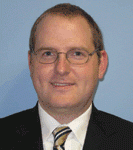Project Summary
Exploration of novel and advanced brine management options is challenging because of the lack of high-fidelity simulators that accurately capture solution thermodynamics and kinetics to optimize separation efficiency and processing options. Existing process simulation software are black box, and inflexible for customization. Here, we propose the development of a new library of open models, including processing blocks and property models for water treatment practitioners. The overarching goal of this project is to leverage the developments and powerful computational engine of Pyomo in the user-friendly environment of IDAES and the ProteusLib module to develop open-source libraries of property models for highly concentrated aqueous and heterogeneous electrolyte solutions, embedded in block model libraries for processing and separations. These libraries will then be used in optimization-based algorithms for simultaneous process synthesis and intensification of brine treatment options. Lab-scale validation of the properties and dynamics of the separation and processing options is also planned. The final project deliverable is a rich library of thermodynamics and process models along with optimization algorithms for the design and synthesis of brine treatment processes. This project is expected to disrupt practices of process synthesis and optimization of water-treatment facilities in a software that is open to all NAWI users and can be integrated with parallel efforts such as LCA in Water TAP3 and the ProteusLib IDAES module. Openness in the models also provides complete access to the (thermodynamic or process) model equations, that can be leveraged in advanced optimization algorithms for large-scale, robust, dynamic optimization or optimal process synthesis
Project Sponsors
Laird – Center for Computing Research
Sandia National Laboratories
Hubertus Tummescheit – Modelon Inc.
Northeast Biosolids and Residuals Association (NEBRA)
Greater Lawrence Sanitary District (GLSD)
Investigators

Jeffrey McCutcheon
Dr. Jeffrey R. McCutcheon is the Al Geib Professor of Environmental Engineering Research & Education in the Department of Chemical & Biomolecular Engineering at the University of Connecticut. He received a B.S. in Chemical Engineering from the University of Dayton and his Ph.D. in Chemical Engineering from Yale University. At the University of Connecticut, he serves as a Center Faculty at the Center for Environmental Sciences and Engineering, Industrial Liason for the Chemical and Biomolecular Engineering Department, and is affiliated with the Environmental Engineering and Materials Science and Engineering Graduate Programs. He is an elected Senator in the University Senate and has been involved in numerous activities at the university ranging from directing an REU program from 2011-2014 to producing a science themed radio show from 2014-2015. His primary research efforts are focused on osmotic processes, including forward osmosis (FO) and pressure retarded osmosis (PRO). He conducts research on hollow fiber and flat sheet membrane platforms and has worked extensively with electrospun nanofibers as a novel membrane material. His work has resulted in 50 publications, 2 book chapters, 3 pending patents, and a number of invited seminars around the world. He is an elected Director in the American Institute of Chemical Engineers Separations Division and serves on the North American Membrane Society (NAMS) Board of Directors. He recently chaired the North American Membrane Society meeting in Boston in 2015 and the 2016 Gordon Research Conference on Membranes: Materials and Processes in 2016. He has received a number of awards including the 3M Nontenured Faculty Award, the Solvay Advanced Polymers Young Faculty Award, The DuPont Young Faculty Award, and the FRI/John G. Kunesh Award from the AIChE Separations Division.

Ranjan Srivastava

George Bollas
Dr. George Bollas is the Director of the Institute for Advanced Systems Engineering (IASE) at the University of Connecticut. He is an Associate Professor with the Department of Chemical and Biomolecular Engineering at the University of Connecticut, a process design expert and winner of the prestigious NSF CAREER Award and the ACS PRF DNI Award. He received B.E. and Ph.D. degrees from the Aristotle University of Thessaloniki in Greece and then worked as a postdoctoral research associate at the Chemical Engineering Department of MIT. At UConn, he is leading efforts to develop and explore novel system representations (steady state and dynamic models) of thermal fluid systems (TFS) in equation-oriented environments that allow system dynamic optimization, sensitivity and uncertainty analysis, fault detection and optimal control. Dr. Bollas is also the director of the Process Design Simulation and Optimization Laboratory (PDSOL). The lab pursues a balanced approach to experimentation guided by robust modeling and simulation of chemical processes, including experimental design, process scaling and control.

Matthew Stuber
Dr. Stuber holds a Bachelor of Chemical Engineering degree from the University of Minnesota – Twin Cities and a PhD in Chemical Engineering from MIT. His graduate research focused on the development of theory and algorithms for advanced formal methods in robust design and optimal design under uncertainty. Specifically, he developed tools necessary to solve challenging problems in rigorous performance and safety verification of process systems for extreme and hostile environments. Dr. Stuber’s post-doctoral work was as a scientist, engineer, and entrepreneur developing an optimized concentrating solar-powered desalination process, launching a start-up company, and piloting the desalination technology for agricultural wastewater reuse in California’s agricultural sector. Driven by the exciting opportunities in pure and applied research, Dr. Stuber decided to make his way back to academia joining the faculty at UConn.
Dr. Stuber’s research focuses on theory and methods for optimization-based approaches to solving challenging problems in energy, healthcare, and food and water security. Dr. Stuber emphasizes the full-pipeline view of bringing fundamental developments and discovery to implementation and commercialization for greatest impact. Recent projects involve rigorous model validation, large-scale global optimization, and optimal design for water and food security in underrepresented communities.

Mayur Ostwal
Mayur is an Assistant Research Professor at Connecticut Center for Applied Separations Technologies (CCAST). He has broad experience and interest in gas separation technologies, mainly, membrane technology and adsorption. He is also interested in novel materials such as graphene oxide, MOF’s and COF’s for their application in gas separations.
Mayur received his PhD in Chemical Engineering from University of Southern California, Los Angeles, US. After that he worked as a postdoctoral researcher at Colorado School of Mines and University of Colorado, Boulder. He then moved to Saudi Arabia where he was a Research Scientist in the Advanced Membranes and Porous Materials Center at King Abdullah University of Science and Technology (KAUST). Before joining CCAST, he was a Scientist at Fraunhofer USA Center for Energy Innovation. He has published over 15 peer reviewed journal articles in the adsorption and membrane technology field along with one book chapter.
Mayur is leading CCAST efforts in evaluating efficacy of masks and filter media in accordance with NIOSH protocols.

Baikun Li
Dr. Baikun Li is the Centennial Professor of Environmental Engineering at the University of Connecticut
(UConn). Dr. Li’s research is in the multidisciplinary areas of bioenergy production from wastes, bioelectricity
harvest from ocean sediment, and biosensors and bioelectronics. Current research focuses on water/soil
electrochemical sensors, real time in situ water quality monitoring, and self-sustained wastewater treatment
processes.
She is the Al Geib Professorship recipient 2013-2016, and was awarded the Woman of Innovation (Research
Innovation and Leadership) in 2010 by the Connecticut Technology Council (CTC). In 2017, due to her
outstanding achievement of bioenergy harvest and biosensor development, Dr. Li was inducted as the Member
of Connecticut Academy of Science and Engineering (CASE).
Dr. Li has published over 180 peer-reviewed journal papers. Dr. Li has served as the Associate Editor for
Environmental Research, Journal of Environmental Engineering (ASCE-JEE), CLEAN-Soil, Air, Water, and
Journal of Air & Waste Management Association (JAWMA). Dr. Li’s research has been supported by National
Science Foundation (NSF), Environmental Protection Agency (EPA), Department of Defense (DoD), United
State Geology Survey (USGS) and industrial partners, with the total fund about $8 million. Dr. Li has
extensively supervised and mentored undergraduate and graduate student, including over 30 undergraduate
researchers, 18 Master students, and 14 Ph.D students. Her “Bioenergy and Biosensor” group has hosted over
2500 visitors globally. In the meantime, Dr. Li has been dedicated in technology transformation with numerous
industrial partners in the State of Connecticut.